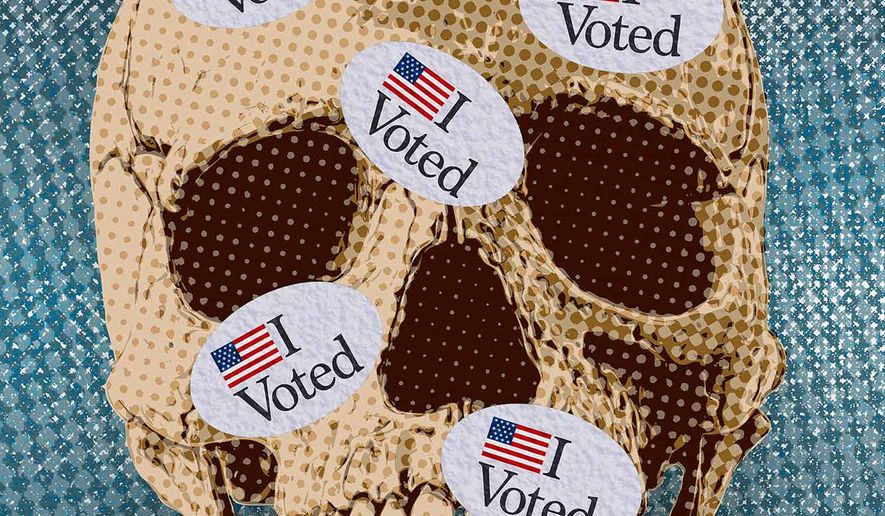OPINION:
The most essential election integrity document is the voter roll. It tells election officials who is eligible to vote and, in states like Nevada that automatically mail ballots, where and to whom mail ballots will be sent. Inaccurate voter rolls can mean that voters receive more than one ballot, ballots are being sent to wrong addresses, and ballots are being sent to dead people.
Under federal law, states are required to “conduct a general program that makes a reasonable effort to remove the names of ineligible voters from the official lists of eligible voters.”
Unfortunately, top election officials across the country are ignoring this law. Take Michigan, for example.
The Public Interest Legal Foundation, of which I am a board member, provided Michigan Secretary of State Jocelyn Benson with the names of more than 25,000 deceased registrants on the state’s voter roll in September 2020.
What did the secretary do with these more than 25,000 opportunities for fraud? Nilch. Nada. Nothing.
After 14 months of inaction, PILF filed a federal lawsuit against the secretary for failing to remove these deceased registrants. We are still fighting with the secretary to have these names removed.
Why doesn’t Ms. Benson want to remove the names of dead registrants from the rolls?
We have even provided her with gravestones and obituaries for some of these 25,000 registrants.
Even more alarming is how long some of these deceased registrants have remained on the voter rolls; 17,479 of these registrants have been dead for at least a decade. And 3,956 registrants have been dead for at least two decades. There is no excuse for these names to still be on Michigan’s voter roll.
Ms. Benson has not done her job. She has been aware of these more than 25,000 dead registrants on her state’s voter roll for more than two years and has done nothing to remove them.
We shouldn’t have to sue election officials to get them to do their job.
You may say that’s just a Michigan problem, surely, most states are following federal law and keeping their voter rolls accurate and up to date. Unfortunately, the data tells a different story.
PILF has purchased and conducted data analysis of state’s voter rolls across the country and complied them into an interactive database that allows individuals to see historical errors in states’ voter rolls. These errors include people registered twice at the same address, dead people who have not been removed from the voter roll, people registered in multiple states, and people registered at commercial addresses.
What we found is startling.
There are more than 317,000 deceased registrants on our nation’s voter rolls. There are also 449,000 interstate duplicates, meaning that people are registered to vote in more than one state.
These statistics reveal a troubling fact that many top election officials are not conducting basic list maintenance to keep voter rolls accurate.
Not only is this list maintenance required by federal law, but it also increases the security and confidence in our electoral system.
Clean voter rolls are not a Republican or Democratic issue. We can all agree that we do not want someone voting twice or from beyond the grave.
I’m calling on Ms. Benson and other top election officials to do their job and remove deceased and duplicate registrants from the voter roll.
Let’s restore confidence in our elections. Clean and accurate voter rolls are the first step to allowing all Americans to trust in our election process.
• Ken Blackwell is the distinguished fellow for human rights and constitutional governance at the Family Research Council. He is a member of the board of directors for the Public Interest Legal Foundation and was the Ohio secretary of state from 1999 to 2007.




Please read our comment policy before commenting.